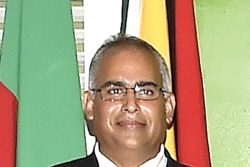Dear Editor,
It is downright shocking that a few lines on Facebook or Twitter from an “influencer’ with zero scientific or medical background is given more credence than researchers who spent decades studying and researching vaccines and viruses down to a single molecule. A study by the Kessler Foundation in Italy found that more than 46,000 Twitter posts a day were linked to COVID misinformation. Avoiding misinformation and disinformation on COVID science can be quite the task in the age of social media so I recommend the following:
How do I know the science is sound? How do I separate strong research from weak?
Science is an iterative process and it allows for itself to be questioned and corrected. Simply put, the scientific method starts with a question or observation from which a hypothesis is developed. This is then tested via experiment from which data is collected, analyzed and conclusions drawn. The hallmark of assessing good science is the peer-review process where other scientists not involved in the work get to scrutinize and criticize it – basically double checking the work before it is published. This review usually takes months, even years if you want it published in a prestigious journal like Science or Nature. If there are issues with the study reviewers can ask for more experiments and data to prove a particular hypothesis is true or can downright refuse the manuscript for publication. If errors and flaws are discovered after publication the published research can be retracted. This is something to watch out for as retractions don’t often make it to the mainstream. Note, studies can be published online before peer-review as pre-prints since researchers want credit for being the first on a topic.
Of course, no one expects the public to have expert knowledge on highly specialized areas in science so when trying to figure out if the science is of high quality ask yourself the following? Is the study peer-reviewed? Are the authors credible and from a recognized institution? Is the research published in a journal of good repute? If the study is reported in the mainstream, what do other independent publications say? Is there high consensus from credible experts on the topic? If some experts express concern check Retraction Watch to see if the published paper has been removed or if a pre-print made it to journal publication. If there isn’t consensus look at the sample size (how many people or datapoints were involved), is it large enough to be extrapolated to the general population? Were there properly designed controls? For example, a control in clinical trials of vaccines/drugs would be a placebo – if you give everyone in the study the vaccine or drug how would you be able to tell that the outcome was indeed due to the vaccine or drug (alone)?
A professional in health care or science said X or Y based on their experience
This is an anecdote or generalized observation and not vetted science. Generalized observation is only the beginning of the scientific method, a lot more has to be done to claim proven science. Check the vetted peer-reviewed science on the topic.
How do I know if a science infographic, chart, image on social media is credible and reliable?
Check the source. In this pandemic, credible sources include the World Health Organization (WHO) or a health authority like the Centers for Disease Control (CDC) in the US. If there is no source, look for an explanation and associated research citation/study, look at the study and ask yourself the questions in point 1?
How do I know the science in a news article is sound?
Most importantly, don’t just read the headlines!
Check to see if you recognize the author and are they usually credible? (You’ve vetted them and the information they presented in the past.) Are they sourcing major health organizations such as the WHO, CDC or the peer-reviewed work of known credible experts? (Experts whose science you’ve vetted already.) If major organizations and known experts are a source then it is easy to go check their individual pages to double check the information you are reading. For example, take the myth on COVID vaccines causing infertility. When the first mRNA COVID vaccines were being administered women wanted to know if it could impact their menstrual cycles so this was being monitored by researchers. Online forums and groups popped up on Facebook in which this was discussed.
While some women had legitimate concerns there were many anti-vaccine ‘activists’ who were part of this group (a red flag). One of these ‘activists’ was Naomi Wolf (now banned from Twitter for spreading anti-vaccine misinformation). She had garnered credibility from her feminist writings (some viewing her as a feminist icon) supporting women so many took her at her word (the wrong thing to do!). Vetting her would reveal that she is an anti-vaxxer who has promoted outlandish conspiracy theories like the 5G wireless network transmitting the virus. She kept raising doubts without presenting specific facts and added more myth to the concerns over menstruation: Can vaccines cause infertility? Can vaccines cause miscarriages? The science shows no evidence that vaccines can cause any of the above and these theories have since been discredited by scientific community numerous times; millions of women have been vaccinated with mRNA vaccines to date without these issues. However, these ideas were amplified by social media influencers, went viral and the damage in spreading vaccine misinformation was done.
Pseudoscience consists of beliefs, practices and blanket statements claimed to be fact and scientific but it does not follow the scientific method. If blanket claims are made in a dogmatic manner without recognising uncertainties and caveats then these are highly questionable and perhaps too good to be true. As a rule, don’t just rely on one source. Look for consistency in the information presented and look for references to peer-reviewed research. Also check the date to make sure the information is not outdated and of course vet your source.
Sincerely,
Jacquelyn Jhingree, PhD.






